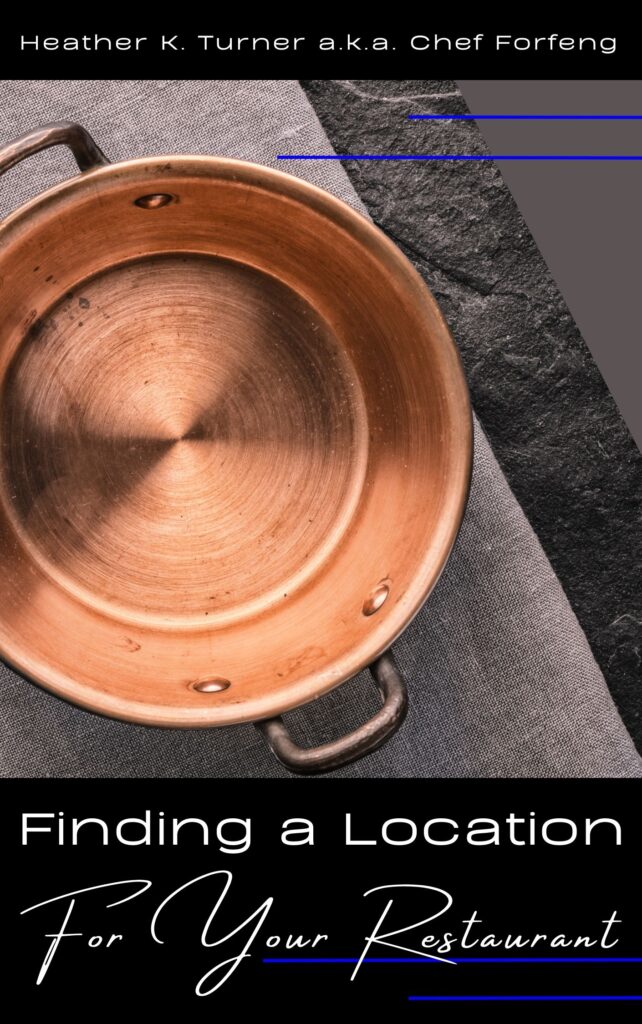 I had a meeting with a client recently, and a big part of our conversation was about hiring for a restaurant.
I had a meeting with a client recently, and a big part of our conversation was about hiring for a restaurant.
I had to dig out my notes to send them but realized I don’t think I’ve ever put these questions out on the blog that I have used in the past as part of working in restaurants in management and for the last twenty years in consulting, where I’ve helped interview candidates for positions.
While none of these questions are rocket science, and there are multiple websites out there offering lists of 10-20 questions, there are some questions on here that I’ve never seen listed by some hiring sites that have “suggested questions.”
It seems that many of the sites had people writing these questions more from a HR perspective, and not from an actual restaurant management perspective, or experience dealing with some of the realities that working in restaurants engenders.
So, if you find a few you have yet to come across, I hope it’s helpful.
The one additional thing I’ve found in calling references is to call suggested references but also call any past positions not given but listed on the job seeker’s resume (and to Google their name in quotes as well for any positions worked that they may not have listed, so (“John Doe” Chef, Kingston, NH) for example.
The one question I always ask of references and non-references is, “Would you hire them back?” if the reply is “Probably not, or no,” that can be a red flag. And in a lot of cases, that’s all you need to know.
I always recommend checking your state’s labor laws to find out what questions you can also legally ask past employers.
Doing a tag team interview (two interviewers) can also help: one person takes notes, and the other asks the questions. People’s body language and facial expressions can be enlightening when answering questions, but if it’s just you asking, you might miss those if your head is bent writing notes.
If you are interviewing multiple candidates, ask to record the interview with their permission because then you can go back and review exactly what was said. I’ve interviewed dozens of people for the same position, and sometimes, interviews get blurred together, and it’s challenging to make a final decision based on memory alone.
Two questions I ask both potential working chefs and GMs (that might be kitchen managers or GMs that are in charge of the whole restaurant or food service facility) is:
What can you tell me about this business? If they didn’t do their homework first regardless of the position hiring for) make it a short interview unless they strike you as a really good candidate. Anyone worth their salt though will at least look at the website, the really good ones will dig around online.
Is there anything that you see that you think could be changed or adjusted? (related to the first question).
Interview questions for working chefs and general managers:
What can you tell me about this business? (if they didn’t do their homework first regardless of the position hiring for) make it a short interview unless they strike you as a really good candidate. Anyone worth their salt though will at least look at the website, the really good ones will dig around online)
Is there anything that you see that you think could be changed or adjusted? (related to the first question).
Some of the questions are somewhat duplicated but asked in different ways. I always liked to throw some repeat questions in that are reworded as sometimes people change their answers. If a chef position is also a head chef or executive chef position, many of the questions asked of a General Manager would also apply.
Working Chef Questions:
- What are your salary expectations and benefits you’re seeking?
- Do you have any questions about the position or our restaurant?
- What specific skills and experience do you bring to our restaurant’s concept and clientele, and how do you align with our values and customer base?
- What inspired you to become a chef? Or cook?
- Describe your culinary journey, including your experience with specific cuisines, cooking styles, or restaurant types?
- How do you handle and adapt to changing food trends and dietary preferences, such as plant-based, gluten-free, or keto diets?
- How do you ensure food quality and consistency in a high-volume environment?
- Can you provide examples of conflicts or challenges you’ve faced in the kitchen and how you resolved them?
- Can you provide examples of conflicts or challenges you’ve faced managing menus, special events, and high-pressure situations?
- What is your approach to sustainability, locally sourced ingredients, and menu creation?
- What is your approach to balancing creativity with customer preferences and cost-effectiveness?
- How do you approach training and developing kitchen staff?
- What are your long-term career goals in the culinary industry?
- Can you share an example of a dish or menu item you created that was particularly well-received?
- Have you done food and wine pairings or food and other types of pairings? Please describe?
- Describe your leadership style and how you foster a positive and collaborative work environment.
- What are your expectations for staff in terms of performance and conduct?
- What are your proudest accomplishments as a chef?
- What drives your passion for cooking?
- What is your vision for the future of your culinary career?
- Who are your biggest culinary influences or role model?
- Are there any specific cuisines or dishes that have impacted your cooking style?
- What challenges have you faced as a chef?
- What are your future goals or aspirations?
- How do you stay up-to-date with industry trends?
- How do you balance your personal and professional life?
- What is your experience in managing a kitchen?
- What is your experience in maintaining food safety standards?
- How do you motivate and lead your kitchen staff?
- How do you handle equipment maintenance and unexpected changes in the kitchen that might impact service and quality?
- How do you encourage ongoing skill development among your kitchen team?
- What are your career goals?
- How do you balance the demands of the job with your personal life?
- How do you handle conflicts between staff?
- How do you effectively train new staff on kitchen procedures?
- What methods do you use to maintain organization in inventory and kitchen operations?
- What methods do you use to create staff schedules?
- What methods do you use to ensure safety and cleanliness in the kitchen and with your staff?
- What is your culinary philosophy or approach to cooking, and how do you stay on top of current food trends?
- What experience do you have with menu development and pricing dishes profitably?
- How do you cost out a menu?
- How do you cost out a recipe?
- How do you mentor any staff that doesn’t have as much experience as you do?
- How do you identify and source high-quality ingredients?
- How do you balance purchasing high-quality ingredients with cost effective purchasing?
- Tell me about your experience accommodating special diets, such as vegan and gluten-free ones,
- Tell me about your experience keeping your team motivated during both busy and slow shifts.
- It’s a slow day, what do you and your staff do?
- Are you currently ServSafe® certified? Which certification?
- Are you familiar with food costing software? If so, which one or ones?
- What Point of Sale software are you experienced with?
- Have you ever had a customer return a dish, and how did you handle this situation?
- How do you balance preparing perfect dishes with sending food out on time?
- Have you ever done inventories prior? Please describe the method and how often you were involved in doing them.
- Have you ever purchased from broadline and specialty vendors? Who and what did you purchase?
- Do you think it makes sense to purchase everything from one vendor? Or to price compare products?
- How many vendors have you dealt with prior at a time?
- Have you ever negotiated prices with vendors?
- Have you ever had to deal with a vendor that tossed product (meaning they would charge for a flat of produce and had taken out some product, turned the flat over gently and then again to make it look full) or a vendor that didn’t properly deduct tare weight from product deliveries?
- If you dealt with the above, how do you deal with the vendor?
- Have you ever run into a situation(s) where you couldn’t afford to make the minimum order for a food delivery and you desperately needed goods? What did you do?
- Have you ever run into a situation(s) where the restaurant couldn’t afford to pay vendor invoices and bills and your vendors cut you off from deliveries until past due invoices were settled? What did you do?
- How long have you been managing others?
- How many staff have you been in charge of prior and what positions?
- How long have you been managing others?
- What was your favorite place to work prior and why?
- Are you prepared to be on call if a line cook or dishwasher doesn’t show up for a shift?
Interview Questions for General Managers:
- What are your salary expectations and benefits you’re seeking? Do you have any questions about the position or our restaurant?
- As a general manager in charge of the entire restaurant, how do you reduce operational costs?
- As a general manager in charge of the entire restaurant handle disciplinary actions with staff?
- Have you ever had to discipline staff members? For what and tell us about a couple of situations.
- Have you ever had to fire someone? If so, how many people, tell me about the experience?
- Have you ever had to hire people? If so, for what positions, tell me about how you approach hiring?
- Can you describe your experience with managing difficult situations, including a specific example, and how you resolved conflicts involving both front and back of house staff?
- Can you describe your experience with managing difficult situations, including a specific example, and how you resolved conflicts involving a staff member and customer?
- Can you describe your experience with managing difficult situations, including a specific example, and how you resolved conflicts involving yourself and a customer?
- Can you describe your experience with managing difficult situations, including a specific example, and how you resolved conflicts involving yourself and a staff member?
- Can you describe your experience with managing difficult situations, including a specific example, and how you resolved conflicts involving yourself and an owner or manager above you?
- What Point of Sale software are you experienced with?
- Are you familiar with food costing? If so, please detail.
- Are you familiar with food inventories? If so, please detail.
- Are you familiar with setting menu pricing? If so, please detail.
- Have you taken a ServSafe® course, and are you currently certified? Which certification(s)?
- Have you ever taken TIPS® training and are you currently certified? (Important if you have a bar or alcohol service)
- Have you ever taken ServSafe Alcohol® and are you currently certified? (Important if you have a bar or alcohol service)
- Are you prepared to be on call and fill in if someone from the back of the house or the front of the house calls in sick or pulls a noshow?
- How do you give feedback to employees?
- Do you become “friends” with employees or do you keep a distance personally?
- What is your skill level with MS Office? If so, please detail what programs within MS office. .
- How do you ensure seamless coordination between the front and back of the house to deliver a high-quality dining experience?
- Give me some strategies for maintaining food quality and presentation?
- Give me some strategies for adapting to changing food trends?
- What measures do you take to adhere to health and safety regulations in both the kitchen and dining areas?
- Can you describe your experience with creating and managing budgets?
- Can you describe your experience with maximizing profitability for both the front and back of the house?
- Have you ever had to deal with employee theft?
- If you have had to deal with employee theft, what did you do?
- Have you ever had to deal with an issue of sexual harassment in the workplace with your employees?
- If you have had to deal with of sexual harassment in the workplace, what did you do?
- Have you done employee scheduling prior? For what daypart (breakfast, lunch, dinner, other) and for how many staff?
- Describe the most difficult scheduling problem you have faced as a manager?
- How do you approach training, developing, and managing staff to maintain high standards of service?
- How do you approach training, developing, and managing staff to maintain high standards for food preparation?
- What steps do you take to address customer complaints involving both food quality and service issues? Give some examples of how you would deal with complaints.
- How do you manage your time effectively to oversee all aspects of restaurant operations?
- What are your long-term goals for improving the restaurant’s performance and success?
- What do you think, in your own words, are your key responsibilities as a GM, including balancing time between overseeing the dining room and the kitchen, and what operational systems would you use to facilitate this?
- How do you plan on onboarding and training new hires?
- How do you plan to manage inventory, and use that data for operational decisions?
- Can you share strategies for effective staff communication, delegation, and handling issues like understaffing or team conflicts?
- Describe your leadership style and philosophy?
- How do you cultivate a strong service culture and manage the demands of the job while maintaining work-life balance?
- Are you familiar with the legal aspects of running a restaurant, such as liquor licenses (if applicable) and labor laws?
- Can you share your experience with restaurant marketing, promotions, and responding to online reviews and public feedback?
- How involved have you been in menu planning and development?
- Describe a strategy you’ve implemented for boosting staff morale and reducing turnover. (and after they give an example) ask them to explain how well it worked and what happened.
- Describe a strategy you’ve implemented to ensure high standards of customer service. (And after they give an example.) Ask them to explain how well it worked and what happened.
- Can you give an example of how you’ve successfully managed a diverse team and describe your journey in the restaurant industry leading up to a general management role?
- How do you balance the needs and priorities of both front-of-house and back-of-house staff?
- What are your strategies for attracting and retaining customers?
- What do you think is most important when dealing with customers?
- What motivates you and what do you find most rewarding about running a restaurant?
- What are your strengths, weaknesses, and career aspirations in the restaurant industry?
- Is there anything else you would like to share about yourself or your experience that might be relevant to this position?
- What is your strongest qualification for this job?
- Tell me of at least two reasons this job is a good match for your skills, strengths, experience and background?
- Give me an example that best describes your organizational skills.
- If offered the position how long do you plan to stay at the establishment?
- What new skills have you learned or developed recently?
- What kind of personality do you work best with and why? And what kind have you had any problems with working with in the past?
- What irritates you about other people?
- What do you think you like and dislike about the job we are discussing?
- Where do you see yourself in five years?
- What attracted you to this position?
If you found this post useful and you are in the process of looking for a restaurant to buy, please check out my book on Finding a Location for Your Restaurant.



Best of luck with the job search!
Thank you, we just lost our chef and need to hire a new one, these questions were extremely helpful! Rob D.